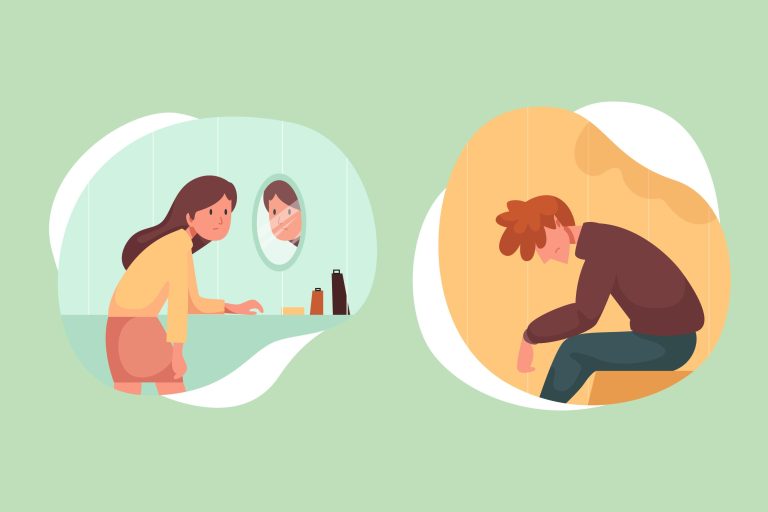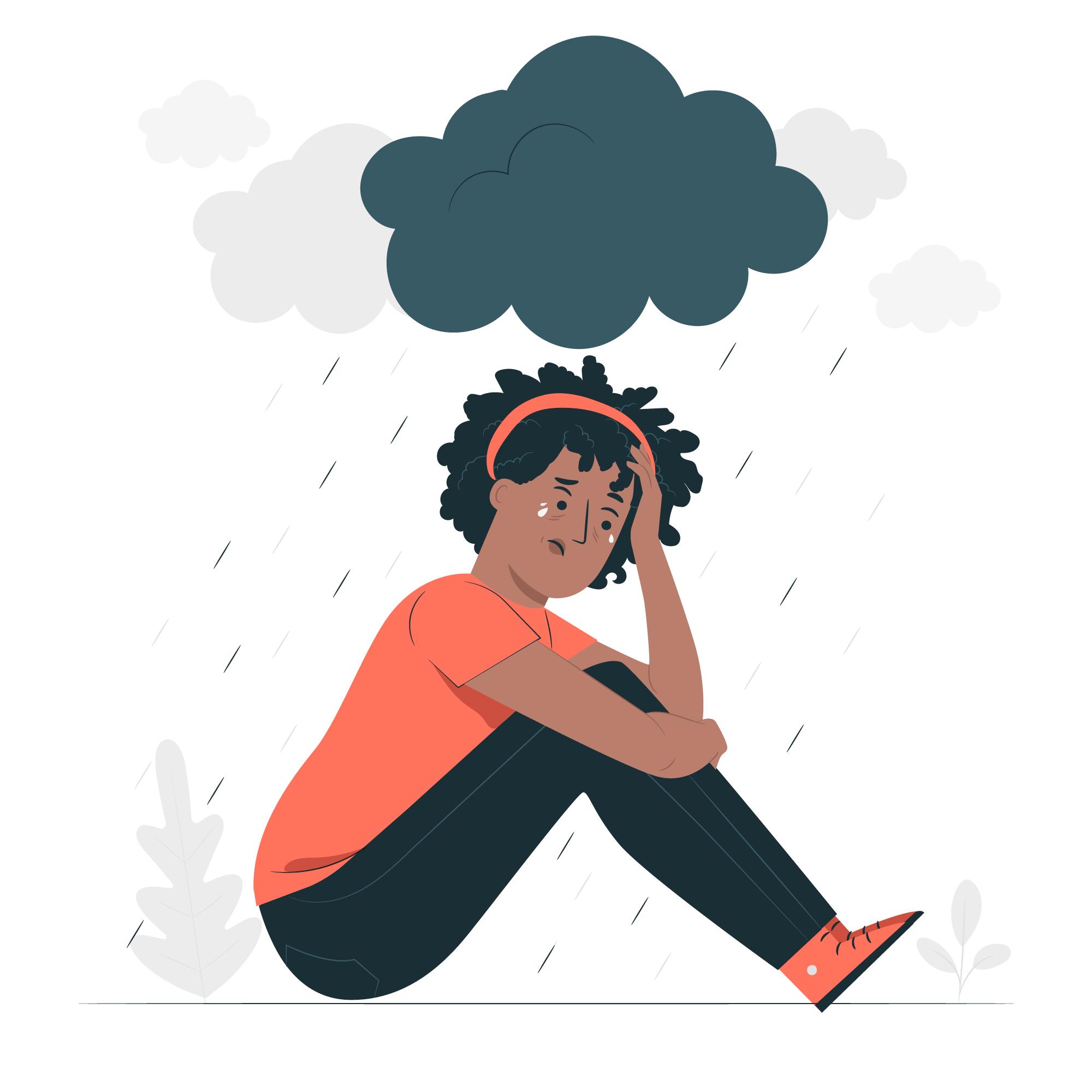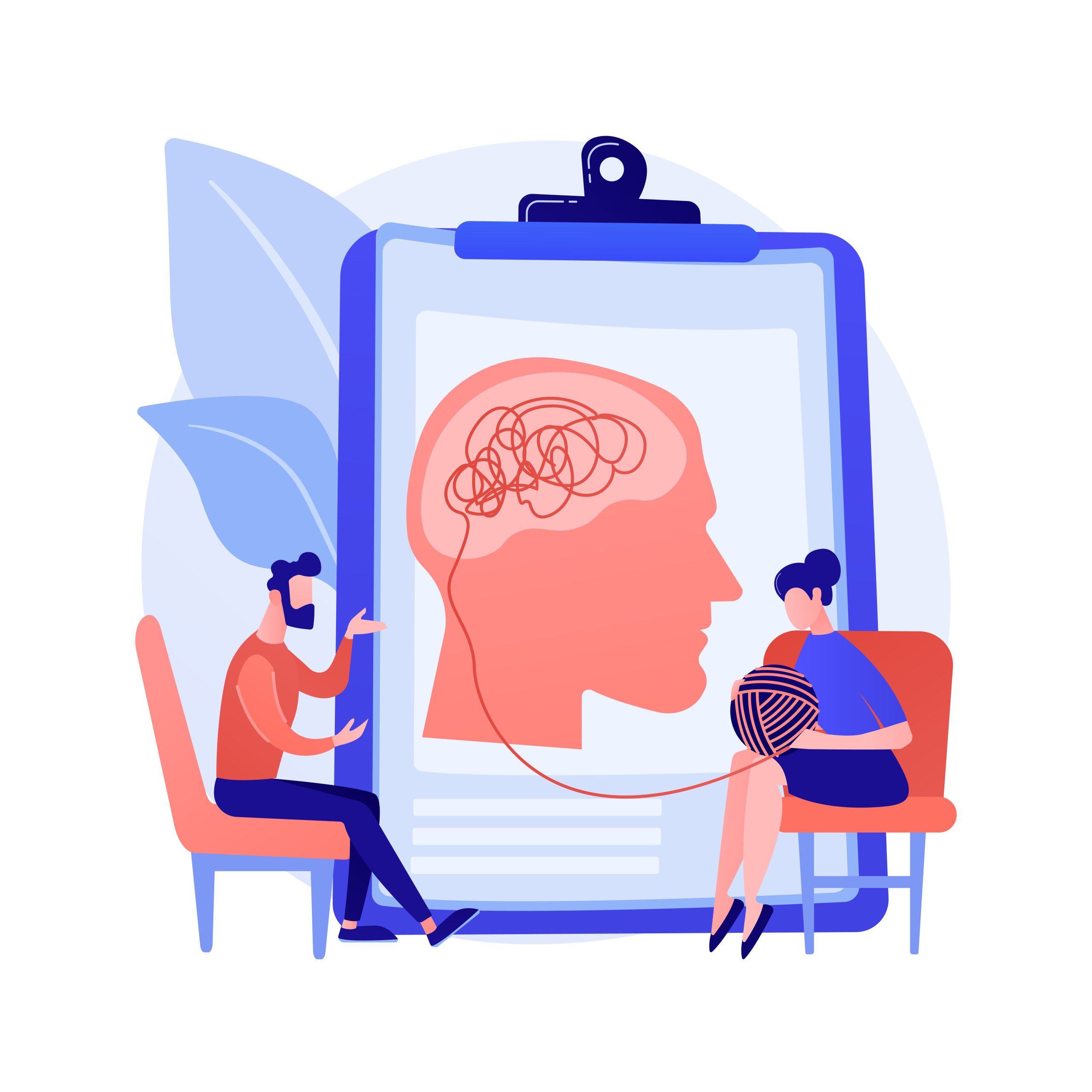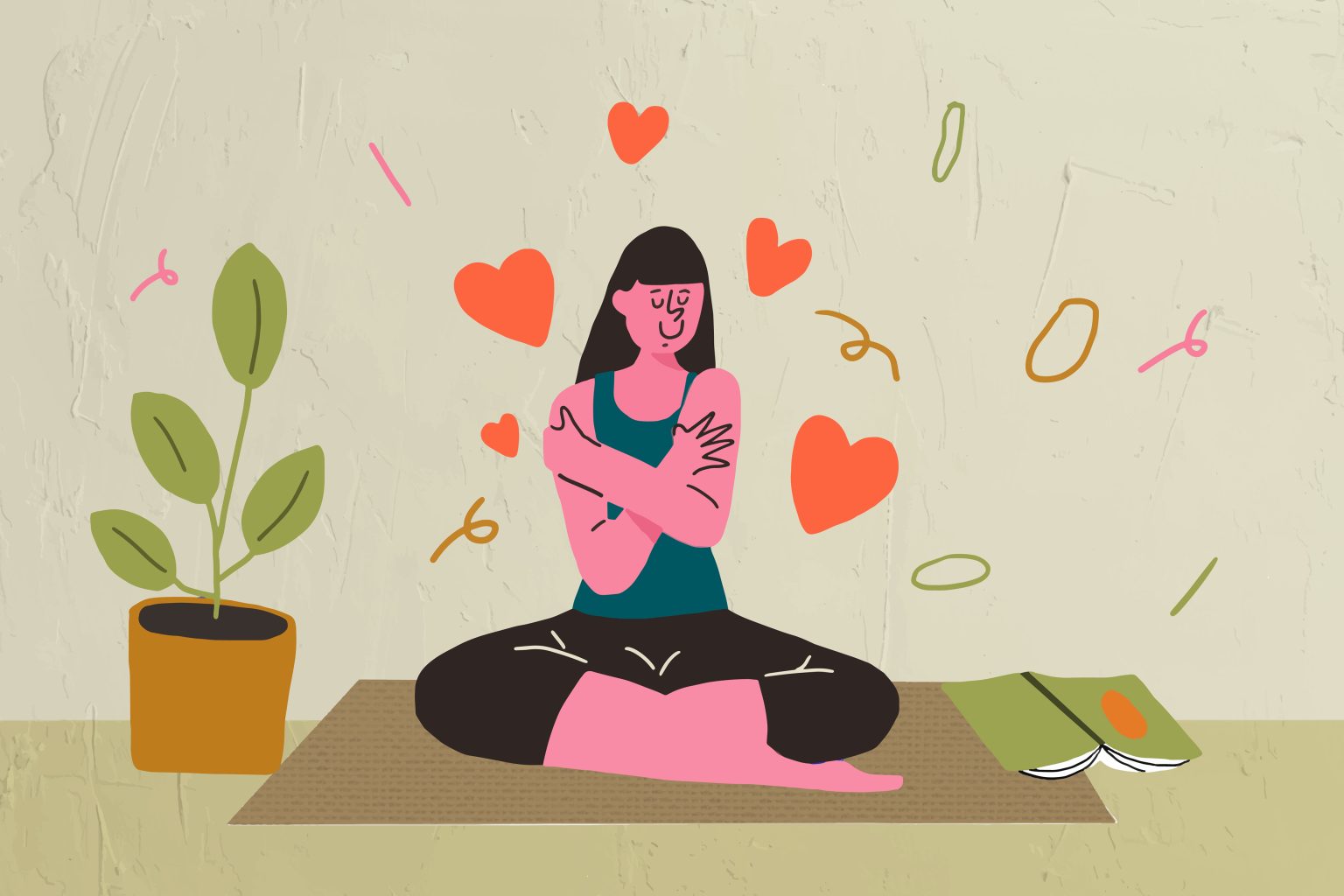
Depression is one of the most common mental health disorders. Currently, around 5% of adults in the world are suffering from depression. With a large number of people suffering from this disorder, there has been increased awareness surrounding it.
Despite this, there is considerable confusion between what can be considered sadness and depression. Therefore, understanding whether what you are going through is depression, lies in understanding the symptoms of depression.
Understanding the symptoms of depression, and what it is like can help you reach out for better mental health resources, treatment options, and work towards improving your mental health. In this article, we aim to give you more clarity on what depression is, it’s signs, some ways to manage depression, and options for treatment.
However, if you are curious to learn more about sadness, and how to manage sadness, you can read more about it here.
Understanding The Symptoms Of Depression
How can you tell if you are depressed? Depression can have clear, and sometimes vague signs, that go unnoticed.
Depression can be understood as a constant feeling of sadness or hopelessness, which doesn’t go away easily. Depression, like other mental health disorders, significantly impact your ability to function in your personal, social, school, and professional life. While screening for depression, here are some physical, mental, and emotional
Depression also manifests in the form of physical, mental, and emotional symptoms:
Physical symptoms
- Sudden weight loss or weight gain
- Shifts in sleep patterns, sleeping too much, or too less
- Anxiety about the future or past events
- Random pains, body aches, and numbness that come up without any explanation
- Excessive crying, or sometimes, finding it very difficult to cry
Emotional and Mental Symptoms
- Irritation or anger towards yourself or others
- Excessive shame and guilt
- Engaging in reckless behavior such as binge drinking, drunk driving, so on
- Difficulty concentrating on tasks
- Feeling numb and zoned out during conversations
- Feeling lost and hopeless
- Feeling tired
- Engaging in suicidal and self-harm behaviors, or having thoughts about suicide*
We are not a crisis intervention center, hence if you feel actively suicidal or have frequent suicidal thoughts, we strongly recommend speaking to a crisis or suicide helpline.
Differences Between Symptoms Of Depression And Sadness

Depression can often look like extreme sadness. However, there are differences between the two that can help you effectively identify what you are going through.
-Sadness is a common, normal human emotion everyone experiences occasionally that goes away with time. But, depression is a serious mental health condition that requires professional help and support.
-Sadness can be triggered by certain life events and usually have a cause behind the emotion. Depression can appear due to a variety of reasons and it can be difficult to identify a single trigger.
-While depression may appear to be similar to sadness to others, depression is more severe and intense, and its symptoms can take longer to alleviate than sadness.
-When compared to sadness, depression can severely impact normal functioning and the quality of our lives. Sadness is only temporary and usually doesn’t affect your daily life.
-Depression is also characterized by suicidal thoughts, and intentions to end one’s life. This, however, is not noticed with sadness.
Dealing With Depression Symptoms
The signs and symptoms of depression can often feel like there is little to no way out of it. However, there are numerous ways, apart from therapy or medication, to manage depression through self-help techniques. Here are some ways you can support yourself through depression.
- Seek support from the people around you: Depression can often make you feel withdrawn from others. However, putting in slight efforts to engage with your family, friends, and loved ones can help you feel better. Talking to your loved ones about your feelings, can also make you feel heard and validated and can lessen the intensity of the depression.
- Engage in activities you like to do: A common symptom of depression is to lose interest in things you like to do usually. Therefore, trying to pursue your usual hobbies and newer ones can help you feel lighter and can improve your mood.
- Maintain regular mild to moderate physical activity: Exercise and mild physical activities help in releasing endorphins, which are known as the “feel-good” hormones. Having a good amount of endorphins in your system helps you feel happier and can alleviate your symptoms of depression. Mild physical activity can also help in managing your sleep cycle and the pains in your body as well.
- Manage Anxiety: Anxiety commonly occurs with depression. When anxiety happens along with depression, it can cause you to get stuck in negative thought spirals. With depression it also becomes easier for you to believe in the negative thoughts. Therefore, managing anxiety with the help of mindfulness meditation, therapy, and other techniques can help lessen the intensity of the depressive symptoms.
- Notice your negative thoughts: This is inspired by Cognitive Behaviour Therapy, which is a form of therapy that works on unhelpful, negative thought patterns. With depression and anxiety, our mind tends to be stuck onto negative thoughts and core beliefs we hold true about ourselves, others, and the world. These extreme, negative thoughts can bring about negative emotions, which overtime lead to anxiety and depression. One of the first steps to work on depression is to observe the negative thoughts we have in our daily life. Noting these down and learning to believe in a more balanced version of these thoughts can therefore, bring about positive emotions.
- Consume a balanced diet: Our gut is known as our “second brain.” Our brain and gut are in constant communication and their activities influence one another. Therefore, what we feed our gut ultimately affects what we think and how we feel. Having a balanced, healthy diet with limited processed foods can improve our gut health, which thereby improves our mental well-being.

Feeling low?
Counseling can be a great tool for you to manage and overcome depression and lead a happy, balanced life.
We are here for you.
Therapy For Depression Symptoms and Sadness
Therapy can be an effective tool in managing and even reducing the symptoms of depression and sadness. Despite the similarities between the two, there may be minute variations in how depression and sadness are treated in therapy. To understand this, we can take a small example.
Consider our emotions to be various colours. For instance, happiness can be yellow, red can be anger, sadness can be blue, and so on.

Sadness is a singular emotion, therefore, it is processed in therapy individually. Therapists usually focus on understanding what caused the sadness and provide you safe space to express this emotion. They also help you identify ways to manage this feeling when it occurs in the future.
They also help you understand what thoughts and negative beliefs underlie your sadness. Then, they help you feel the feelings within you and create space for the emotion instead of suppressing or pushing it away.
Taking the example of colours again, depression is a lot more complex. It is a mix of various colours (emotions.) There may be hints of hopelessness, guilt, shame, anger, other than just sadness. Therefore, the approach to processing depression in therapy would be slightly different.
Therapy involves seeing beyond the immediate, apparent symptoms. Often, depression is anger with others that one turns towards oneself. Processing these complex emotions by dealing with them in a safe place can help you manage your depression.
There may be thought and feeling patterns that further reinforce symptoms of depression. Therapy may be able to point those out and create awareness about what is happening within your mind.
Some therapists also work on raising your awareness with what happens in your body. Our emotions have the capacity to bring about physical sensations which we often fail to notice. Therefore, psychologists often use body-awareness techniques to notice and make space for these sensations which eventually help in managing depression.
Medication for depression symptoms: Is it necessary?

Medications are one of the many treatment options for depression.
Medications like antidepressants can be helpful when the symptoms cause serious dysfunction in your social and work life. We recommend that you see a psychiatrist and opt for medication if your depression makes you unable to stop crying, focus on work, sleep, or if you feel too overwhelmed or suicidal.
If you are uncertain whether you need medication, speak to a therapist. A therapist can ask you relevant questions, evaluate your situation and symptoms, and provide you suggestions on whether you will require medication.
Depression can make you feel hopeless about tomorrow. It can be a highly distressing and overwhelming experience. However, it is a condition and a condition that can definitely be treated. It needs patience, time and energy as well as the right professional support and help. In time, you can certainly seek the right help and support, feel better, and manage your symptoms of depression, and lead a happy, balanced life.
Frequently Asked Questions
Depression can be an extremely difficult experience to go through. It can make you feel like life shall always remain this way. However, with the right professional help, self-help, and lifestyle changes, you can certainly manage your depression and overcome it.
Depression cannot be prevented. But, it can be managed with early intervention, counseling, lifestyle changes, and having healthy coping skills in place.
If you are experiencing active thoughts of suicide, you may require immediate support and help. We recommend you to seek offline counseling, or call a crisis or suicide helpline number.
About the Author
This article was written by Parvathi Ganesan, Counselor at Inner Space. This post was consulted & approved by professional therapists practicing online therapy and counseling.
Ask a Therapist
If you are interested to know more about depression, sadness, and other mental health topics, ‘Ask A Therapist’ is a platform for you to ask your questions related to Mental Health, Mindfulness & Emotional Well-Being to our team of qualified Therapists.




